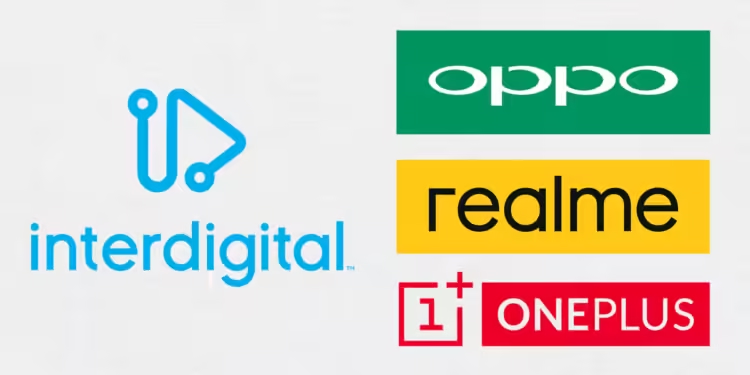The Delhi High Court recently rejected InterDigital Technology’s request to access licensing agreements between Chinese mobile phone manufacturers Oppo, RealMe, and OnePlus and Standard Essential Patent (SEP) licensors Ericsson and Orange SA. This request was made in connection with a patent infringement suit filed by InterDigital.
Justice Anish Dayal, however, instructed both InterDigital and the defendants to provide certain licensing agreements with chipset supplier Qualcomm.
This May 31 ruling pertains to an ongoing legal battle in India between InterDigital (the plaintiff) and Oppo, RealMe, and OnePlus (the defendants).
InterDigital has accused the defendants of infringing on its patents related to SEPs necessary for providing 3G, 4G, and 5G services, and for playing high-definition videos using H.265 High Efficiency Video Coding (HEVC) standards on mobile phones.
InterDigital asserts that the defendants must procure licenses from InterDigital at fair, reasonable, and non-discriminatory (FRAND) rates to use the patented technology.
To support its claim that the defendants were unwilling to procure licenses at FRAND rates, InterDigital urged the court to compel the defendants to disclose their licensing agreements with Ericsson and Orange SA. On May 31, the court denied this request, stating that these agreements were not relevant for determining FRAND rates in this case at this stage.
The court noted that it was up to InterDigital to demonstrate the FRAND rates agreed upon with other third parties. It also highlighted the potential impact on the confidentiality of third parties (Ericsson and Orange SA).
Agreements with Qualcomm to Be Submitted
InterDigital filed the patent infringement suit in 2021, with similar suits also filed in other countries against different manufacturers, including Lenovo and Xiaomi. During hearings in Delhi, InterDigital argued that agreements between Oppo, OnePlus, RealMe, and Qualcomm were relevant to the dispute.
The defendants contended that they could not be sued for patent infringement as InterDigital’s SEPs had been licensed to Qualcomm, which implemented the technology in its chipsets. They claimed no further license from InterDigital was needed, citing the doctrine of exhaustion.
InterDigital argued that its infringement claim concerned the use of SEPs in the mobile handsets as a whole, not just in the chipsets. The court decided that both the plaintiff and the defendants should disclose their agreements with Qualcomm to determine the applicability of the doctrine of exhaustion and assess any overlap in licensed technology.
These agreements will be protected within a confidentiality club to ensure sensitive information remains confidential.
Pro-tem Measures Cannot Be Punitive
In a separate judgment, the Division Bench of the High Court allowed the defendants to provide a bank guarantee from an Indian bank (IDBI) to secure InterDigital’s royalty claims temporarily. This permits the defendants to continue selling phones without an injunction, overturning a single-judge order that required a court deposit to cover license fees.
The Division Bench highlighted that pro-tem measures should not be punitive, allowing the defendants to furnish a guarantee from an Indian bank.
The main suit is set for a hearing on July 3 by a single judge. Justice Prathiba Singh has expedited the trial, aiming to conclude the suit by the end of 2024.
InterDigital is represented by Senior Advocate Gourab Banerji and a team of advocates. The defendants are represented by advocates Saikrishna Rajagopal and others.

















